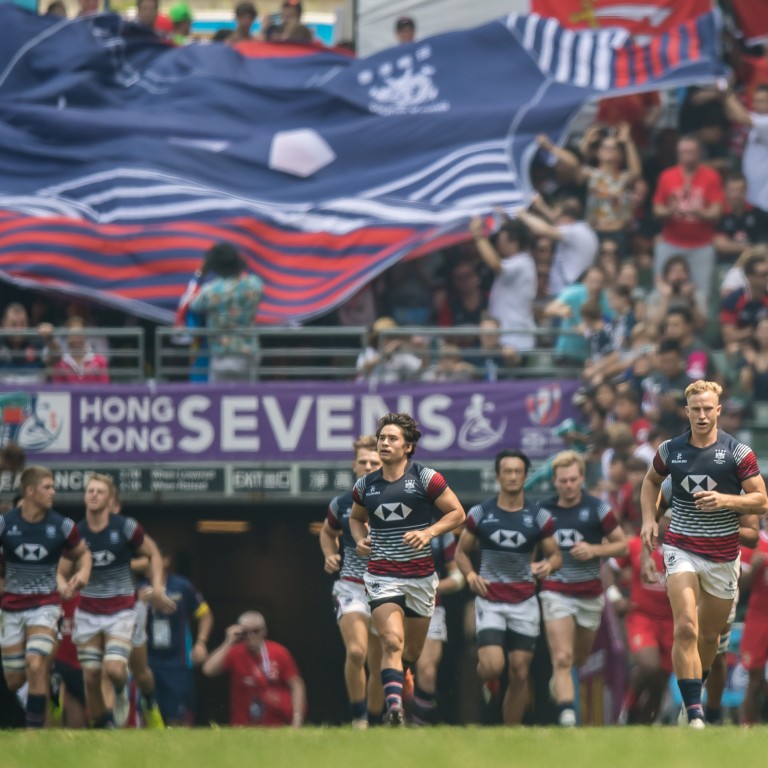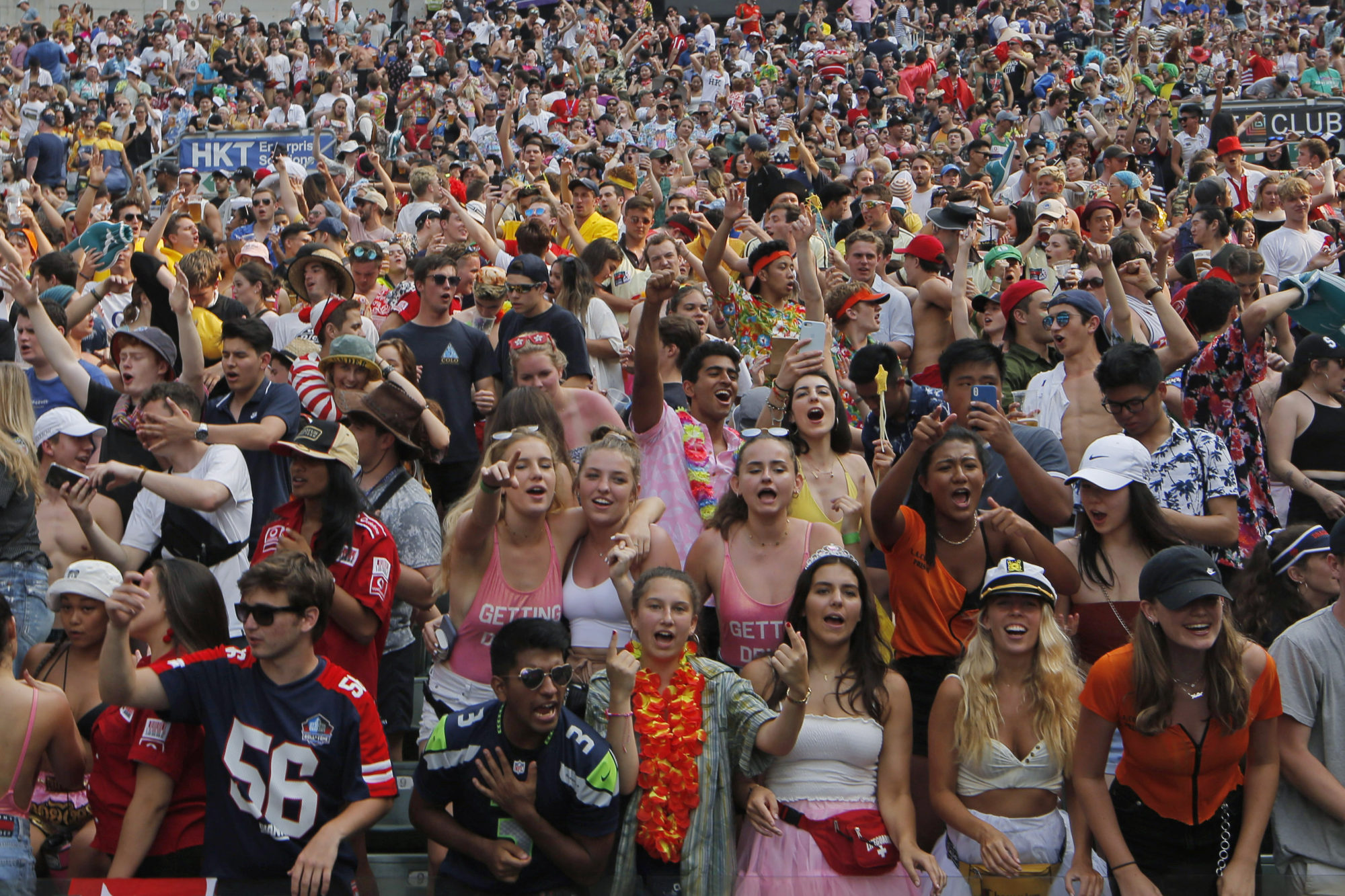
Hong Kong Sevens vs Covid-19: how tournament came back from brink to beat toughest opponent
- From cancelled Sevens in 2020 and 2021 to an event proceeding under pandemic constraints, the Post recaps a testing three years
- Fans at November’s tournament must wear masks, show a RAT result and obey gathering rules – but the Sevens has survived
Holding the tournament after three years of Covid-related cancellations will bring some relief to the city, even if reminders of the pandemic are visible throughout.
Hong Kong Stadium will not be full, given the 85 per cent cap on its 40,000 capacity. Scanning a QR code on entry using the LeaveHomeSafe app and complying with vaccination requirements will make it a Sevens like none before it.
And spectators must show a photo of a negative RAT, marked with their name and the date and time, obtained that day.

Food and drink may be bought on the stadium concourse and consumed in one’s seat. Face masks must be worn at all times when not refuelling, and in the stands people must remain in groups of 12 or fewer, in line with anti-gathering rules.
If a Covid Sevens sounds a little compromised, no Sevens left a considerable void.
Covid-19 had caused 1,300 deaths, most of them in China’s Hubei province. By what would have been Sevens weekend, that had become 60,000 worldwide. As Hong Kong Rugby Union (HKRU) chief executive Robbie McRobbie put it at the time: “We are living in a fast-changing world.”
Relieved to avoid a complete cancellation, the HKRU was still left with the task of shifting the moving parts to the autumn, in conjunction with the government, the tourism board and suppliers in mainland China where factory production halted while the outbreak was contained.
“We left the decision as late as we could,” McRobbie said then. “Once you hit 90 days [before the event] you’re in the realm of having to pay very significant deposits on hotels and flights.” He added: “[April 2022] is our big focus now.”
The HKRU warned that the longer sporting events could not be staged, the greater the possibility of them disappearing for good.
But in March this year came positive noises as Financial Secretary Paul Chan Mo-po said a business conference would take place in November along with the Sevens.
With the city under some of its strictest regulations yet, after an Omicron outbreak – including local sport being mothballed with its venues closed for months – the way forward remained unclear.
Hong Kong Sevens launch: details emerge on tickets, teams and stadium food
Fans were to be allowed in, and permitted to drink but not eat.
Momentum gathered with a tournament launch at the stock exchange on the very day the city’s leader, John Lee Ka-chiu, announced a relaxation of quarantine rules that would render the closed loop largely redundant.
Only 16 men’s teams would play across the usual three days, with tickets priced at 2019 levels. Dialogue about food would drag on until, with a fortnight until kick-off, the government allowed its sale inside the ground.
“With three days of food, drink, music and plenty of thrilling sevens rugby on offer, the atmosphere inside the stadium is guaranteed,” McRobbie said.
The Covid Sevens? Perhaps. But an event of global renown is on the way back. Starved of action since 2019, Hong Kong is finally set to feast.

